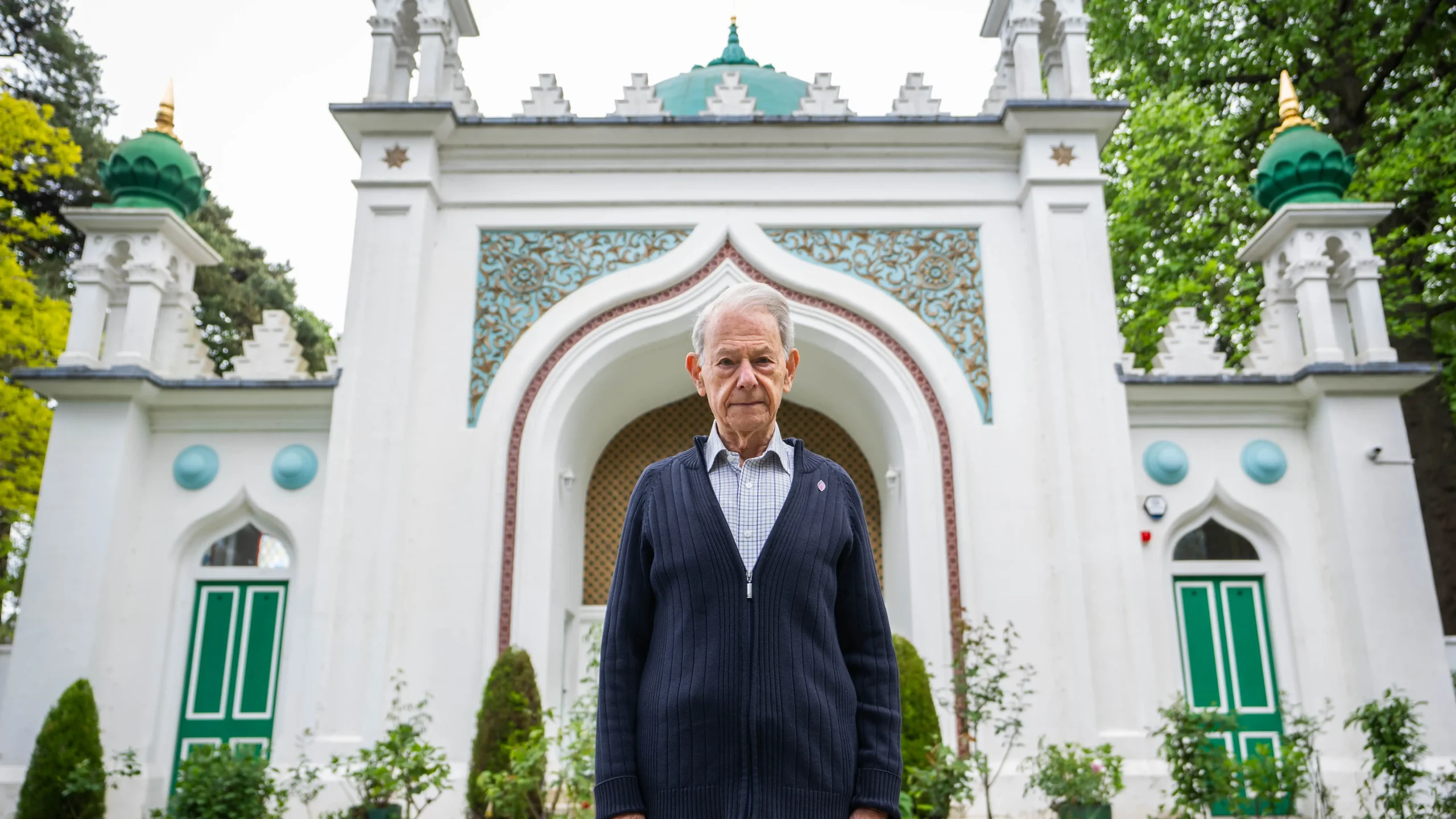In a historic and emotionally resonant gathering, a Holocaust survivor, Mr. John Hajdu, graced an interfaith commemoration of Victory in Europe (VE) Day held at the Shah Jahan Mosque in Woking, Surrey — widely recognised as the oldest purpose-built mosque in the United Kingdom and northern Europe. The event not only honoured the end of the Second World War but also paid tribute to the often-overlooked sacrifice of 1.5 million Muslim soldiers who fought and died during the global conflict.
Mr. Hajdu, now 88 years old and residing in Muswell Hill, north London, delivered a poignant address recounting his harrowing experiences as a young Jewish boy in Nazi-occupied Hungary. Speaking to attendees and the Press Association, he underscored the necessity of interfaith understanding and historical education, particularly in a time when the echoes of division and intolerance still persist.
“It is absolutely vital that we remember together,” Mr. Hajdu stated with conviction. “This isn’t just about Jewish memory or Muslim memory — it is shared human memory. We must speak to one another, educate the younger generations, and ensure these stories are not forgotten.”
Born in Budapest in April 1937 into a middle-class Jewish family, Mr. Hajdu described his upbringing as not particularly religious. However, life took a drastic turn when Hungary allied itself with Nazi Germany in 1941, plunging his family into fear and eventual separation. By 1943, his father was conscripted into a forced labour camp for Jewish men — a precursor to the much darker days that would follow.
Recounting those traumatic times, Mr. Hajdu shared how his mother struggled to care for him while keeping their home intact amid growing anti-Semitic laws. On April 5, 1944, Hungarian Jews were ordered to wear the infamous yellow star of identification. Within weeks, Jewish families, including Mr. Hajdu’s, were forced into designated residences marked as “yellow star houses” — properties specifically labelled to isolate and control Jewish citizens.
“These were not just physical markings on our clothing or buildings; they were psychological weapons,” he said. “The fear was constant, and the dignity of our lives was stripped away, day by day.”
The interfaith event at Shah Jahan Mosque served as a powerful reminder of the unity that is possible among diverse communities. Religious leaders, community members, and youth from different faiths came together to reflect on the horrors of war, the cost of hate, and the resilience of the human spirit. Significantly, the mosque — which dates back to 1889 — stood as a symbolic venue, bridging cultures and histories in a shared space of remembrance.
Mr. Hajdu, who has dedicated much of his later life to educating others about the Holocaust, often speaks at schools, including Muslim and Catholic institutions. His message remains consistent: history must be acknowledged, taught, and remembered through inclusive dialogue. As conflicts continue to plague parts of the world, and as acts of antisemitism and Islamophobia re-emerge, the essence of such gatherings becomes even more critical.
“The story is not mine alone,” Mr. Hajdu concluded. “It belongs to every person who believes in justice, peace, and humanity. If we don’t carry these lessons forward, we risk letting history repeat itself.”
The VE Day celebration, by bringing together survivors, scholars, and ordinary citizens across faiths, reflected a collective effort to honour the past while sowing seeds of unity for the future.

